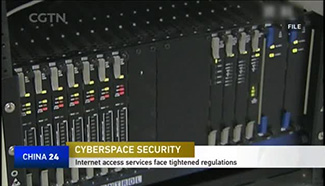WASHINGTON, Jan. 25 (Xinhua) -- Throughout his eight years in office, former President Barack Obama's job approval ratings among Democrats and Republicans had the biggest gap so far, according to a Gallup poll released Wednesday.
Obama averaged 83 percent job approval among Democrats and a starkly lower 13 percent among Republicans. The whopping 70 point gap is the largest in recent U.S. history.
That gap easily eclipses the prior high -- 61 points for former President George W. Bush. All other presidents had party gaps of 55 points or less, Gallup found.
Although the extreme polarization in Obama's ratings could reflect his policies and approach to governing, it also reflects the era in which he governed.
The last three presidents -- Obama, Bush and Bill Clinton -- and four of the last five (including Ronald Reagan) averaged greater than 50-point party gaps in their job approval ratings, Gallup found.
George H.W. Bush was the recent exception. He averaged 67 percent overall approvals during his first three years as president, when the U.S. economy was strong, the Cold War was ending and he led a successful war effort against Iraq.
In those years, the party gaps in his approval rating were between 32 and 34 points, typical of presidents prior to Reagan. His last year in office, when the economy struggled to emerge from a recession, the party gap was 54 points, similar to the polarization level for the most recent presidents, Gallup found.
In recent decades, it has become clear that Americans' evaluations of presidents are more strongly tied to their personal political loyalties than in the past.
This may reflect that recent presidents' actions have become more controversial or just more politically charged, such as their decisions on the use of military force, their economic policies, their attempts to reform healthcare and other entitlement programs, and their choices of Supreme Court justices, Gallup said.
To some degree, the closer link between partisanship and presidential evaluations could also result from the expanding and more varied news sources available to Americans today.
In the past, Americans' exposure to a president's work was limited to a few minutes on one of the major network news broadcasts or to what they read in a local newspaper, Gallup noted.
More recently, Americans' options for news have expanded beyond those traditional sources to include national cable news and Internet news and opinion sites.














